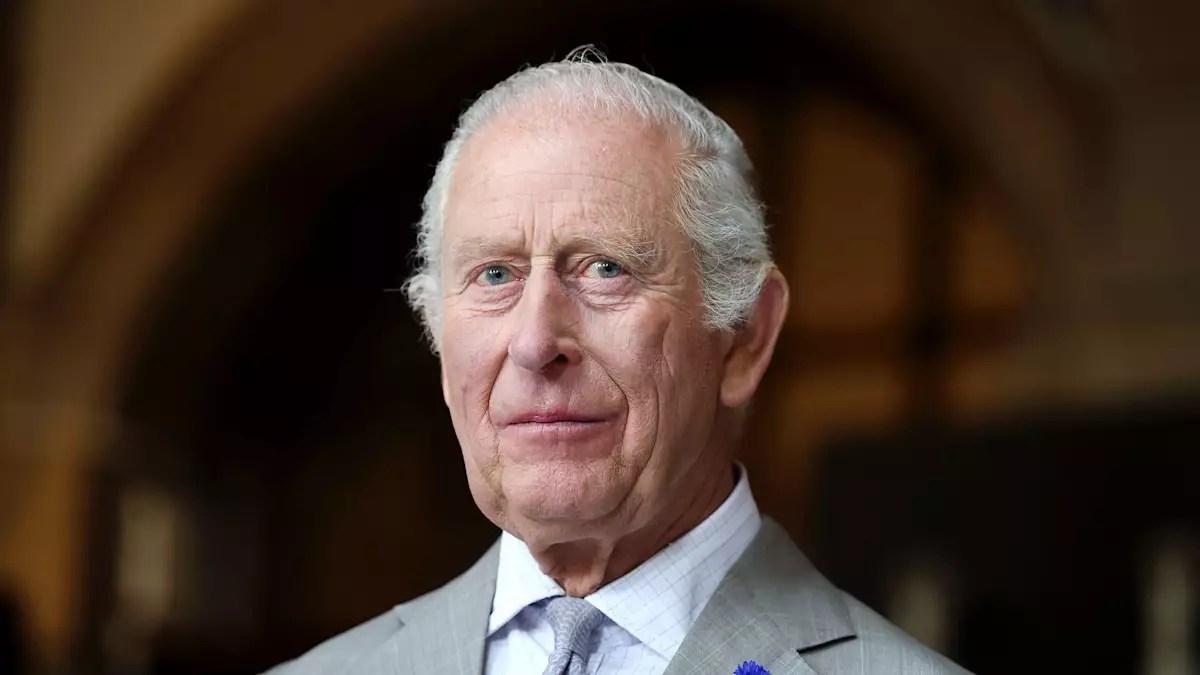In a world increasingly consumed by uncertainty, public figures often become symbols of resilience—or vulnerability. His Majesty King Charles III recently shed light on his ongoing battle with cancer during a public engagement in Bradford, offering a rare glimpse into his personal struggles. This interaction took place organically, instigated by a local florist, Safeena Khan, who inquired about the monarch’s well-being. Responding with optimism, King Charles expressed that he feels he is on the “better side” of his health journey, a statement that, while optimistic, resonates deeply with those who have faced similar battles.
Such transparency is not only rare but also vital, as it serves to humanize a figure often seen as untouchable. It is a poignant reminder that even those in royal positions encounter significant personal challenges. These moments of humanity can foster a connection between the monarchy and the public, breaking down barriers that often exist between them. By sharing his journey, Charles sheds light on the realities of illness and resilience, resonating with anyone who has dealt with health struggles.
The Power of Personal Connection
During his visit to the Impact Hub Yorkshire, King Charles‘s light-hearted banter with Safeena Khan highlights the importance of personal connections, especially in times of hardship. The monarch’s candidness in addressing his health directly instills a sense of empathy and strength, encouraging others to speak openly about their challenges. This interaction marks a striking contrast to the typically reserved nature of royal engagements, where emotions are often veiled behind duty and decorum.
Furthermore, King Charles’s gift of attentiveness reflects a hallmark of compassionate leadership. It is not only about bearing the weight of national concerns; it’s about checking in on individual well-being. This emphasis on connection is particularly important to those battling their own personal demons. In an era when mental health is increasingly acknowledged as crucial to overall wellness, Charles’s approach serves as a beacon of hope and solidarity, showcasing the strength that arises from community and mutual support.
Navigating Royal Duties Amid Struggles
Despite his ongoing treatment, King Charles is determined to fulfill his royal responsibilities. This unwavering dedication exemplifies a remarkable work ethic and a relentless spirit, both of which are commendable traits for a leader. However, it also raises questions about the pressures faced by public figures and the expectations placed upon them, even when their health is compromised. The account shared by Stamford Collis, a 22-year-old student battling cancer, highlights how King Charles engages with others facing similar challenges. Their conversation diverged into diet and recovery, illustrating the monarch’s willingness to share knowledge and offer support despite his own hardships.
However, it’s essential to recognize the balance between duty and self-care. Queen Camilla’s remarks about her husband’s relentless commitment to his work raise important issues about self-preservation amidst obligations. The expectation for King Charles to soldier on while dealing with a serious illness could set a concerning precedent. There is a delicacy in navigating these responsibilities, as leadership must not come at the cost of one’s health.
Challenging the Norms of Leadership
King Charles III’s current journey prompts recognition of the evolving role of monarchy in modern-day society. His choice to reveal aspects of his cancer treatment is a departure from traditional royal discretion—signifying a potential shift toward a more relatable and accessible monarchy. This transformation reflects broader societal changes, illustrating an increased appetite for vulnerability and authenticity from leaders.
Moreover, as we witness this metamorphosis, it raises critical questions around the roles of leaders in addressing profound issues like health, resilience, and the human condition. By openly discussing his cancer journey, King Charles is not only demystifying the challenges associated with serious illnesses but also setting the stage for a new conversation around leadership.
As society moves forward, it becomes increasingly important for leaders—be it in monarchy, politics, or any setting—to embody the virtues of resilience, openness, and empathy. King Charles III’s journey through illness and his continued dedication to public service unmistakably resonates, reminding us all that strength lies not solely in remaining unaffected by challenges, but in facing them head-on while serving and inspiring others.







Leave a Reply